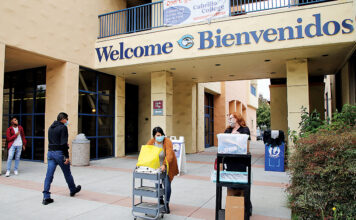What does it take to be a hero? Every day, people make our town a better place to live. Every year, the Aptos Chamber of Commerce asks for nominations to recognize and thank our unsung heroes at the annual dinner. When Aptos was a small village, everyone had step up, to do whatever it took to make life work. In the last 100 years, two names stand out for their commitment to our community, Paul Johnson and Ralph Mattison. This is Ralph’s story.
Ralph was born in 1896 in his parent’s Victorian house on Mattison Lane near Soquel. His grandfather arrived in Santa Cruz in 1849, helped build the Soquel Congregational Church and was its first deacon and also, the first Justice of the Peace. Ralph’s father was a farmer, county supervisor, county treasurer and served on the California Highway Commission.
Although lumbering continued in the upper reaches of Aptos Creek canyon, by 1900, the boom days were over. Orchards sprang up throughout the county. Apples were planted on the hills of the Valencia Creek drainage and Aptos became an apple processing center. The pretty apples were shipped all over the world, but something had to be done with the ugly ones. There was no refrigeration, so apples were peeled, cored, sliced and dried. Ralph’s father built a dryer on Mattison Lane in partnership with a Chinese man, Lam Pon (traditional Chinese names have the family name first). The Asian Exclusion Act did not allow Asians to own property so Lam Pon acted as the foreman. In 1902, Ralph’s father built a second apple dryer in Aptos which Lam Pon leased from 1905 through the 1940s. About 1,400 to 1,750 tons of fresh apples were reduced to 200-250 tons of dried apples per season, while burning 400 tons of wood for fuel. Originally, young local women were employed at the dryer, but they would get into fights with each other, especially the day after a dance. So, Lam Pon hired Chinese to do the difficult work. There was pushback about the Chinese, but Sheriff Howard Trafton supported the firing of the local women.
In 1918, Ralph and his father built an apple cider vinegar plant to use up the apple peels and cores, instead of paying to have them hauled away. They produced 250,000 gallons of vinegar per year. It was one of only three vinegar operations in California.
Ralph’s father died in 1919, in the Spanish Flu epidemic which was spread by soldiers returning from World War I. Ralph took over the family businesses. His father’s death left unpaid debts and, at age of 22, Ralph had to borrow $100,000 which he repaid in full. Shortly thereafter, he married Hazel Collins and built a house above the village on today’s Mattison Lane. Ralph had one of the first telephones. His number was 6. He also expanded into a mushroom growing operation and also shipped fresh apples. At one point, he had over 75 employees.
Ralph once reminisced how he missed the calls of the meadowlarks which used to be plentiful in this area. He recounted how the birds would follow the farmer’s tractors and dig up the newly planted seeds. So, the farmers would plant seeds soaked in poison. When the birds died, they would be plowed into the field as fertilizer and new seed would be planted. The birds were so plentiful that no one ever expected them to disappear.
In the early days, everyone had to help fight fires. The fire bell in the middle of town would be rung and everyone came running to man a bucket brigade to throw water on a burning building. Axes were also used to bring down the parts of a burning building. In the 1920s, Ralph lost one of his vinegar plant buildings to a fire, and the back section of the Bayview Hotel was also lost to fire. Ralph helped to organize the Aptos Volunteer Fire Department. Ralph and Cornelius Van Kaathoven, who owned the grocery store, decided that the town needed a fire truck, so they bought an old Locomobile chassis and fitted it with two chemical fire extinguishers, buckets and ladders as the first fire truck. Next, they bought an old gasoline truck to use as a 1,000-gallon water tanker and put a pump on it. Ralph became the first Fire Chief, a position he held for 26 years.
This story continues next month. This chapter sets the stage for Ralph’s exploits in the second half. It is a privilege to share these adventures with you. If you enjoy these tales of the lives and times of Aptos history, please put the Aptos History Museum on your holiday gift list. Make a donation. We can’t survive without your support! Thank you.
Sign up to read the full article for free
Create a free account to unlock the full story.
Don’t have an account? Create one here











